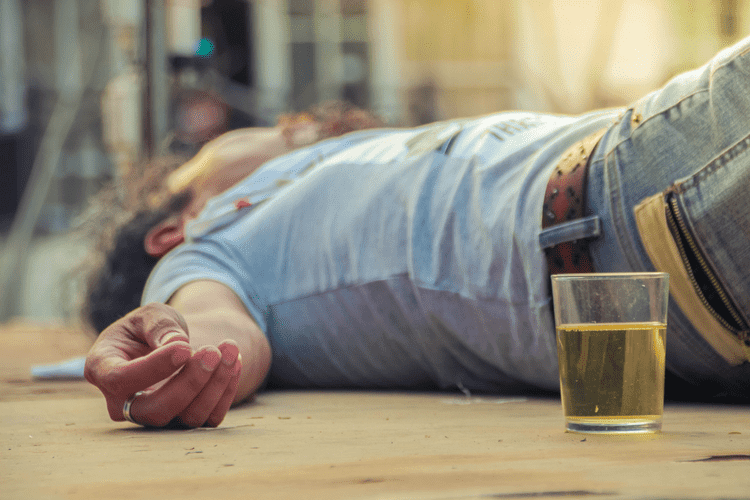You could start by keeping a symptom diary so you can see any links between when you drink, and any anxiety or panic attacks which occur later on. This can help to show you if your anxiety gets worse when you drink alcohol. The sequential, parallel, and integrated models each are beneficial in certain respects, and each method should be considered a valuable option in the practitioner’s toolkit.

The link between alcohol and anxiety
- If a person uses alcohol as a form of self-medication, it can quickly escalate into a serious problem.
- It has been reviewed by appropriate medical or clinical professionals and deemed accurate on the date of review.
- Neurotransmitters are chemical messengers which have different effects on the body.
- Many people are familiar with the feeling of having a few drinks to help them ease into social situations.
Finally, TCAs may react with alcohol in the brain to cause respiratory depression (Bakker et al. 2002). Taken together, the findings reviewed here provide some instructive information on gender differences in the comorbidity of anxiety and AUDs. Thus, women are more likely than men to have both disorders, and the presence of anxiety disorders may exacerbate the course and severity of alcohol problems in women.
How Anxiety and Alcohol Feed into Each Other
- Years of moderate to heavy drinking can cause liver scarring (fibrosis), increasing the risk of liver diseases like cirrhosis, alcoholic hepatitis, fatty liver disease, and liver cancer.
- Depending upon the severity and underlying causes of your panic attacks, you might also work with a healthcare professional to determine if you could benefit from prescription medications or talk therapy.
- A mental health provider will perform a thorough psychological evaluation, ask about your symptoms, learn what may be triggering your anxiety attacks, and inquire about your personal and family medical history.
- Some studies on mice show that alcohol-related anxiety can last anywhere from 4 to 14 hours.
- Treating underlying medical conditions such as a cardiac arrythmia or thyroid problem can sometimes eliminate the panic attacks.
Therefore, retrospective assessments showing that social anxiety disorder commonly precedes problems with alcohol superficially suggest that the former causes the latter. However, this type of examination provides no information about the effects of alcohol misuse on later development of social anxiety disorder. A review of studies published in 2012 Sober House found that anxiety disorders and alcohol use disorders often occur together. Several proposed explanations exist for the link, including genetics, a person’s environment, and the brain mechanisms related to addiction and anxiety symptoms. Sometimes, people turn to alcohol or other substances to help them cope with symptoms of mental illness.
How to prevent alcohol causing or worsening anxiety
Consistent with these hypotheses, research has shown that at least among women with social phobia, participation in AA may be less appealing and less effective than other approaches (Thevos et al. 2000; Tonigan et al. 2010). Two critical elements of CBT skills training also may be especially difficult for patients with comorbid social anxiety disorder, including drink-refusal skills and enhancing one’s social support network. In essence, https://financeinquirer.com/top-5-advantages-of-staying-in-a-sober-living-house/ clients need to show assertiveness to engage in the parallel process of ending relationships and habits that are high risk for relapse while also proactively initiating contacts and improving relationships with others who will support recovery efforts. Therefore, clients in CBT who also have social anxiety may particularly benefit from additional practice with assertiveness, perhaps including adjunctive social-skills training.

Prevention and heart health
If you struggle with panic attacks and feelings of anxiety, it is important to understand how alcohol can affect your mental health and potentially make these symptoms worse. However, the long-term effects of alcohol can cause anxiety or make the symptoms of an anxiety disorder worse. Additionally, chronic alcohol use can lead to tolerance or dependence, as well as cause physical damage to the body (including the brain, liver, and heart). Alcohol has an effect on brain chemistry – it can induce panic because of its effects on GABA, a chemical in the brain that normally has a relaxing effect. Small amounts of alcohol can stimulate GABA and cause feelings of relaxation, but heavy drinking can deplete GABA, causing increased tension and feelings of panic.14,15 Panic attacks can occur due to alcohol withdrawal.
Alcohol and anxiety

For most people, the symptoms will peak during the first few days, but they can continue for weeks. Research suggests that breathing exercises, meditation, light- or moderate-intensity exercise, and muscle relaxation techniques can help prevent panic attacks when practiced regularly. The workbook Mastery of Your Anxiety and Panic, by David H. Barlow and Michelle G. Craske, provides descriptions of practices that can help to reduce symptoms.
- Even if you do experience a panic attack when you stop drinking alcohol, it is good to know that they are manageable.
- Alcohol use can cause sexual dysfunction, such as difficulty achieving or maintaining an erection and decreased sexual sensations.
- The self-medication explanation for the comorbidity of anxiety and AUDs has received the most attention in the clinical and research literature.
- Anxiety is a relatively common mental and physical state, but when it’s exacerbated by alcohol withdrawal it can be more severe and lead to panic disorder.
- One of the most important steps in relieving severe alcohol withdrawal anxiety and panic attacks is by building a strong network of supportive individuals around you.
- This is especially true when coupled with the physiological symptoms of drinking.
- Although panic attacks themselves aren’t life-threatening, they can be frightening and significantly affect your quality of life.
